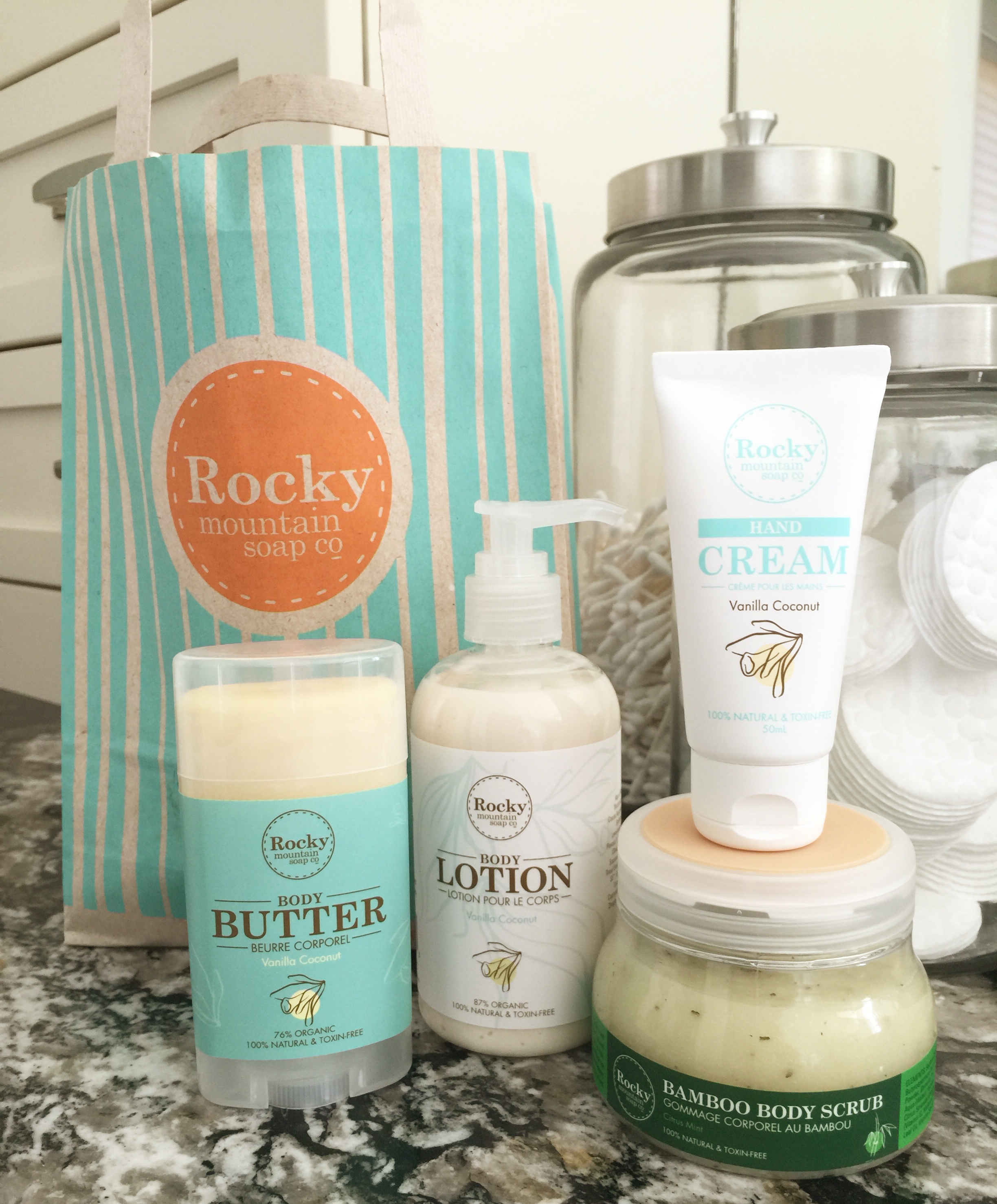What goes on your skin, goes in.
Our skin is the largest organ in the body and it acts as a protective barrier between our internal organs and the outside world. However, the skin is also permeable and can absorb chemicals and toxins from the environment, including the products we use on our bodies and in our homes. This is why it is important to be mindful of the products we use and to choose non-toxic options whenever possible.
Both conventional beauty and personal care products as well as household cleaners contain chemicals that can be harmful to our health. These chemicals can be absorbed through the skin or inhaled and accumulate in the body over time, increasing the risk of long-term health problems. In fact, many of these chemicals in these products, such as parabens, phthalates, and certain synthetic fragrances, are known endocrine disruptors.
Endocrine disruptors mimic or interfere with the body’s natural hormones, leading to a range of negative health effects. For example, some endocrine disruptors can bind to estrogen receptors and promote the growth of estrogen-sensitive tumors, which can increase the risk of breast cancer. Others can interfere with the production, transport, or metabolism of hormones, leading to imbalances and disruptions in the endocrine system.
Exposure to endocrine disruptors can have a particularly significant impact during critical periods of development, such as fetal development and puberty, causing lasting effects on hormone levels and reproductive function. Fertility can also be negatively effected by endocrine disruptors. In fact, research has shown that certain chemicals found in personal care products can interfere with reproductive hormones and decrease fertility in both men and women.
Switching to non-toxic personal and household products can help reduce our exposure to endocrine disruptors and promote hormonal balance and overall health. By choosing products that are free from these harmful chemicals, we can reduce our risk of health problems and promote a healthier body and lifestyle.
- Reduce Exposure to Harmful Chemicals: Because harmful chemicals are so prevalent in so many household and personal care products, opting for non-toxic alternatives reduces exposure to these chemicals, thus promoting overall health and well-being by extension.
- Protect the Environment: The chemicals in household and personal care products are not only harmful to us, but also to our environment. They can pollute the air, water, and soil, leading to damage to ecosystems and wildlife. Switching to non-toxic products can help reduce our environmental footprint and promote sustainability.
- Safer for Children and Pets: Children and pets are particularly vulnerable to the harmful effects of chemicals in household and personal care products. Non-toxic alternatives can help create a safer environment for them to live and play in.
- Better for Sensitive Skin: Many people have sensitive skin that can be easily irritated by the chemicals in conventional household and personal care products. By switching to non-toxic products, skin irritation can be reduced, and overall skin health will improve.
- Supporting Ethical Brands: Non-toxic product brands are often committed to using sustainable and ethical practices, including sourcing ingredients responsibly and reducing waste. Supporting these brands contribute to a more ethical and sustainable economy.
When it comes to non-toxic beauty products, there are certain chemicals and ingredients that we may want to avoid. Here are some examples:
- Parabens: Parabens are a common preservative found in many beauty products, including shampoos, conditioners, lotions, and makeup. They have been linked to hormonal disruptions and may increase the risk of breast cancer.
- Phthalates: Phthalates are often used in fragrances and can also be found in nail polish, hairspray, and other personal care products. They have been linked to hormonal disruptions, reproductive problems, and asthma.
- Formaldehyde: Formaldehyde is a preservative that is often used in nail polish and hair products. It has been classified as a carcinogen and can cause skin irritation and allergic reactions.
- Sodium Lauryl Sulfate (SLS): SLS is a foaming agent that is often used in shampoos, body washes, and toothpaste. It can be harsh on the skin and may cause skin irritation.
- Synthetic Fragrances: Synthetic fragrances are often used in beauty products and can contain a range of harmful chemicals. They can cause skin irritation and allergic reactions.
- Heavy Metals: Some beauty products, such as lipsticks, eyeshadows, and mascaras, may contain heavy metals such as lead, mercury, and arsenic. These metals can be harmful if ingested or absorbed through the skin.
Here’s a more in depth list of the top 19 Chemicals to avoid in our skincare line.
In Health,

